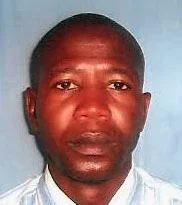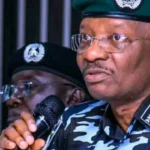Afolabi Gambari
When the African Democratic Congress (ADC) was announced last month, the individuals who congregated there were the attraction: former presidential aspirants as well as former governors were there, as there was a former senate president who himself had been governor previously, although in a military regime. The congregation also had sympathisers among their audience; those who had been battered and bruised by the system or those who had suddenly found themselves on the other side of the divide, and for whom life had since ceased to be a bed of roses.
They seemed calculated. No sooner did they announce themselves to the audience than they began to yell “people”, suggesting that they are messiahs that the Nigerian people had yearned for ages but who had just arrived to execute their mission. Speaker after speaker, the projection was the same: the people of Nigeria have suffered untold deprivation for decades, and it’s time for them to be liberated. It did not require a careful study of the individuals on parade, however, to view them with circumspection, or even outright suspicion. It hasn’t been long since a good number of them held public office in Nigeria, and it requires no expert at chronicling history to see that had they fared well in office conscientiously and patriotically, there would not be any need to present themselves again as the people’s messiahs. Granted that they are even here to “save the people”, it is still not enough. So, what are they out to achieve?
The answer to the question above didn’t take long to come to the fore. It took only a few days for the discerning minds to see clearly that, beyond being messiahs, the group also has a water-muddying agenda – euphemism for stoking anger and confusion.
Hours after President Bola Tinubu accorded a fitting funeral to his immediate predecessor, Muhammadu Buhari, the ADC, in a statement signed by its National Publicity Secretary, Mallam Bolaji Abdullahi, launched a tirade ostensibly aimed at inciting the public against the president.
Abdullahi, who himself at a time was the chief publicist for the ruling All Progressives Congress (APC), said the president’s effusive participation in the funeral was “a deliberate publicity stunt by an unpopular administration.” The administration may be unpopular, no thanks to the slow outcome of its policies that aim to ameliorate the plight of the ordinary Nigerians who have continued to breed poverty across all segments of the country. But a publicity stunt? What was Tinubu to do as a sitting president at the demise of his predecessor, let alone a predecessor as Buhari who literally enthroned?
The ADC spokesperson also stated that the Tinubu administration had “previously distanced itself from Buhari’s policies, especially on fuel subsidy, the economy and public sector management, only to now attempt to cloak itself in the very legacy it once denounced”.
He added, “This is hypocritical and in bad taste. You cannot spend months discrediting a man’s legacy only to turn around and perform grief for the cameras.” He concluded: “Nigerians can see through their grand deceit.”
It could well be that Abdullahi did not align with the leadership of ADC in branding the APC government hypocritical for the role it played in Buhari’s funeral. The day after the former president was interred in his native Daura home, the ADC leadership also trooped there to offer condolences to the family, and the visit was made for the cameras – for effect. Apparently, they would say that they had visited for other reasons than political. But they can say that to the Marines or, better still, fellow hypocrites.
The APC could have ignored the ADC’s tirade. But, perhaps, for record purposes, I offered a response in what has now signalled the shape that politicking in Nigeria would take ahead of the 2027 general election.
Call it “equal measure”. Special Adviser to the President on Media and Public Communications, Hon. Sunday Dare, condemned in strongest terms what he called “obnoxious statement” from the ADC about the state funeral of former Buhari, asserting that the ADC’s statement was “nothing more than a desperate attempt by a poorly amalgamated political contraption desperately clutching at straws for relevance it will never attain”.
Dare appeared to get the grip. Little wonder he described the ADC’s comment as “hollow and attention-seeking criticism”. He wasn’t finished. Hear him again: “A party still grappling with an identity crisis presumes lecturing the President of the Federal Republic on governance, decorum, and public accountability. How utterly ridiculous.” The ADC leadership would be hard pressed to admit that the party has an identity crisis. But it is just what it is.
The special adviser went further to outline what he called “tangible achievements” by the incumbent administration, for the first since by a spokesperson since the advent of the administration: “The Naira has been stabilised and exchange rates harmonised. Oil production has increased to 1.7 million barrels per day, and FAAC allocations have surged by over 60 per cent, resulting in 31 states that were previously burdened by debt now able to pay salaries, pensions and contractors. The Naira has also been decoupled from oil market volatility, regaining resilience.” A distinguishing factor is between a party that is operational and another party that has yet to determine its operational methods.
But despite the foregoing that seemed to reduce the ADC to rubles, the party did not appear overawed.
Abdullahi, like a prowling eagle, pounced on the APC yet again. Hours after the Tinubu administration announced the appointments of some heads of federal agencies, who included the son of ex-military president Ibrahim Babangida, Muhammed, as Chairman of the Bank of Agriculture (BOA), the ADC spokesperson said the appointments was a “desperate ploy to regain the trust of northern Nigerians”, harping on the criticisms by some prominent political figures that Tinubu’s appointments were lopsided and violated the federal character principle enshrined in the constitution. He said: “Northerners, as co-owners of this republic, will not be deceived by such tokenism. They can see through the president’s actions and recognise that symbolism is not governance.”
While the ADC, through Abdullahi, is muddling the water as it seeks relevance and acceptance, the APC, through Dare is departing from its past of taking on government with only insolence and abuse without providing concrete proofs as a counter. The picture gets clearer by the day as race kickstarts frenetically towards 2027. But will the APC tackle critics with the calmness and assuredness of Dare, its spokesperson? Time will tell.







